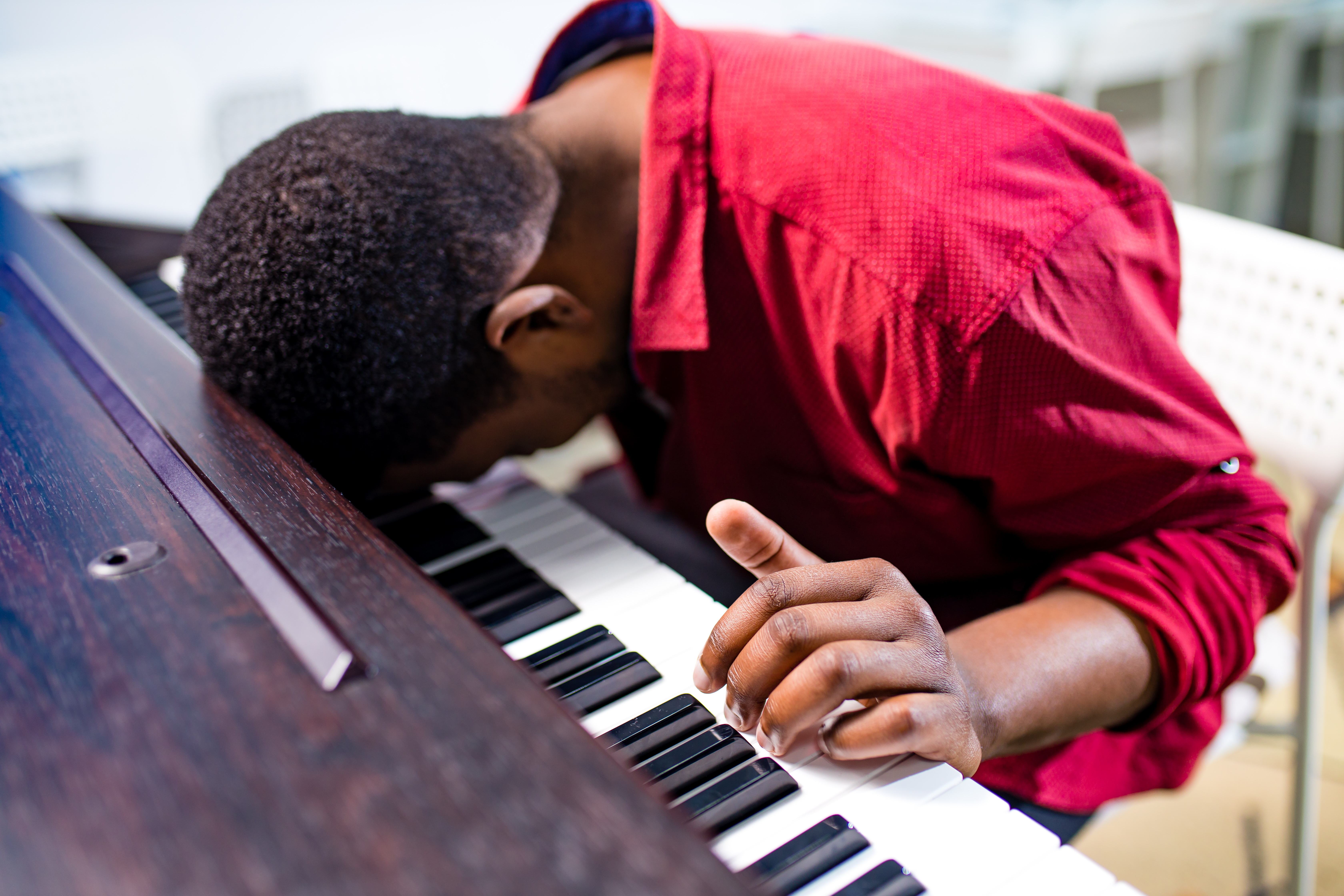Part Two: Why Fight It?
BY MEGHAN VANCE • SEPTEMBER 11, 2023
In part one of this series, we gave some ways to define and identify perfectionism. But is perfectionism really a problem? Sure, our desire to “get it right” can cause us frustration while we practice, but isn’t it also what actually helps us to get it right? Isn’t it worth it? If perfectionism is helpful, why fight it?
It’s true: perfectionism often leads to initial success. Perfectionistic music students often make terrific progress, get rewarding praise, and feel great accomplishment as they master basic concepts and skills. But it doesn’t last. Harvard cautions its students: “…strategies that made you successful in high school are no longer sustainable. The very relentlessness of perfectionism that once led to praise can cause students to miss deadlines, obsess over minute details of assignments, and sacrifice their wellness.”
As perfection is ultimately unattainable, perfectionism is ultimately unsustainable.
Bulletproof Musician puts it this way: “Aiming for perfection is one thing. Expecting perfection, demanding it, and beating yourself up for falling short dooms you to failure, frustration, and diminished confidence and motivation.”
FIVE REASONS TO FIGHT PERFECTIONISM
REASON TO FIGHT #1: SLOW GROWTH

It may seem paradoxical, but perfectionist students, despite experiencing an initial burst of success, end up moving slower than their peers. Why?
FEAR OF MAKING MISTAKES
This fear can cause a student to avoid practicing. The same fear can cause a student to play super slowly: triple-preparing every single note they’re about to play. Often a student will play so slowly that the song, even after weeks of practice, is unrecognizable because of its slow tempo.
A NEED TO FIX ALL MISTAKES
Students who can’t let go of mistakes often spend far more time on material, because they’re working to perfect it rather than learn from it. In music, teachers sometimes assign material too difficult for a student to perfect: the material may be necessary to build one specific skill. (Many composer-teachers over the centuries have even subtitled their books according to what skills are focused on: “for velocity,” or “studies in octaves,” i.e.) Music students need to be able to prioritize which mistakes to tolerate and which mistakes to correct in order to make good progress.
Anxiety Canada writes that perfectionists can be “overly cautious and thorough in tasks (for example, spending 3 hours on homework that should take 20 minutes).” This extra unnecessary time adds up, putting perfectionists further and further behind their peers.
REASON TO FIGHT #2: FRUSTRATION
Perfectionistic musicians experience a great deal of frustration as they practice. Because they are unable to tolerate mistakes, they eventually get frustrated with everyone: themselves, of course, for not being perfect; other musicians who aren’t taking them or the music seriously enough; audience members who cause distractions; even family and friends may find themselves berated for interrupting practice sessions, blamed for not providing extreme amounts of time or money, or resented for making suggestions that the musician relax.
REASON TO FIGHT #3: LACK OF SELF-WORTH & CONFIDENCE
Michael Pyryt, for the Davidson Institute, writes, “Each test, assignment, project becomes another situation that puts the self-concept at risk,” and “…children tend to equate the evaluations they receive on their assignments as indications of their self-worth. The grade of A may become a stamp of approval for the student. A poor grade represents a disconfirmation of a child’s brightness.”
For a perfectionist student, coming in 2nd-place at a competition may not simply be an indicator of who gave a better performance on the particular day. They may see it as an indicator that they weren’t as good as the other performer as a person: not as smart, as talented, as capable, as hard-working, as worthy of respect. Once the student begins thinking this way, it becomes even more difficult to approach music confidently. They doubt their own intelligence, ability, character, and even whether it is right for them to share their music. All of this quickly becomes a self-defeating cycle, and the student is unlikely to break it without help.

REASON TO FIGHT #4: LACK OF HOPE & MOTIVATION
Lack of self-worth leads to lack of confidence, but it also leads to a lack of hope. The student may eventually believe that they are not intelligent enough, capable enough, hard-working enough, worth enough to ever “succeed.” Once students reach this point of thought, practice seems pointless. Colleen Kessler of Raising Lifelong Learners writes, “Perfectionism…keeps gifted perfectionists from every completely feeling good enough about themselves. It keeps kids from taking risks. They become so afraid of failure that they avoid work, play, and new experiences altogether.”
REASON TO FIGHT #5: LACK OF JOY
In the end, perfectionist musicians end up miserable, and many quit playing music. Frances Wilson for Interlude sums it up well: “Perfectionism can destroy our love of music and rob us of joy, spontaneity, expression, communication and freedom in our music-making. In short, it can lead us to forget why we make music.”
In next week’s installment, we’ll discuss types of students who are particularly susceptible to perfectionism.

